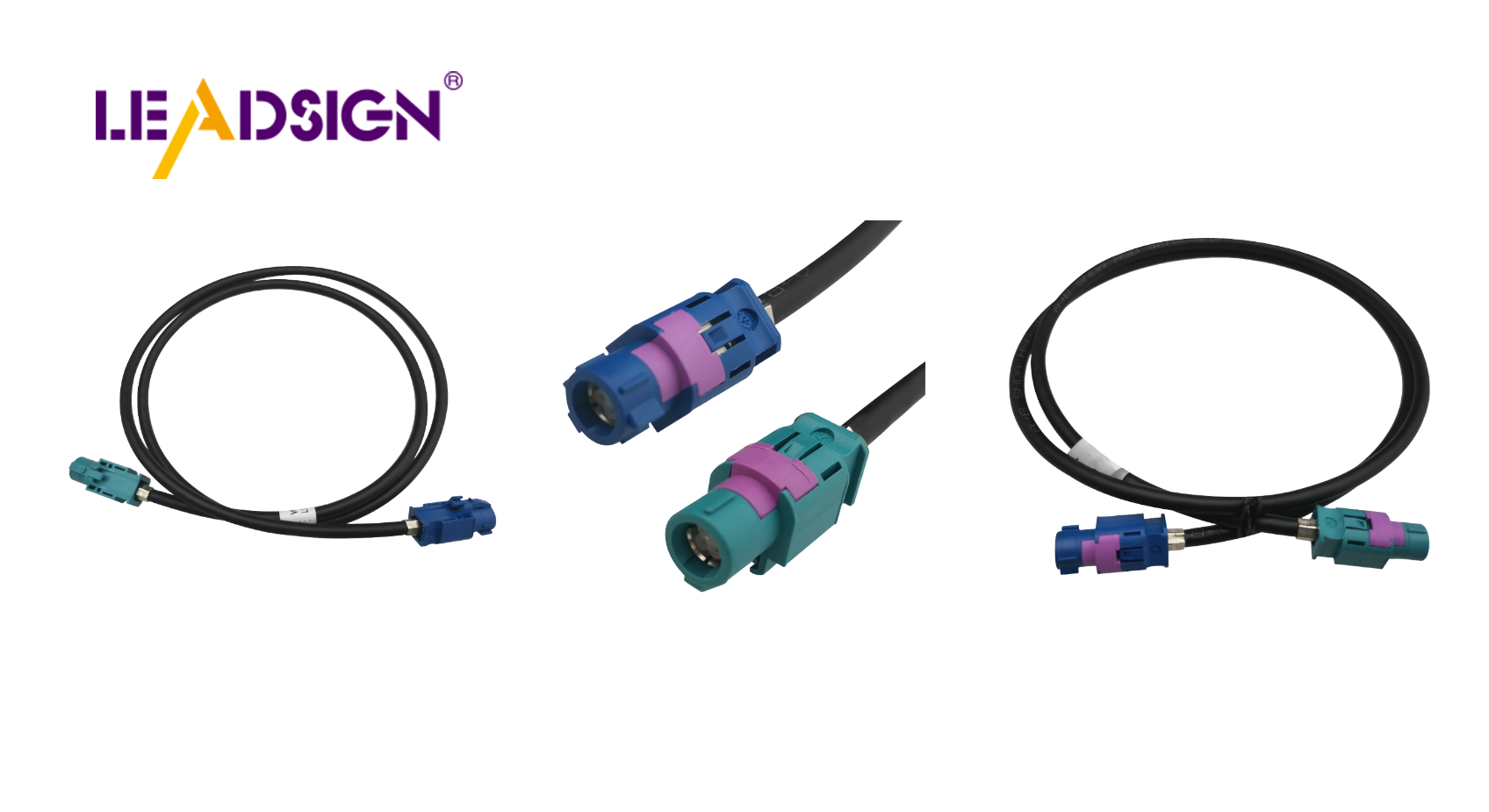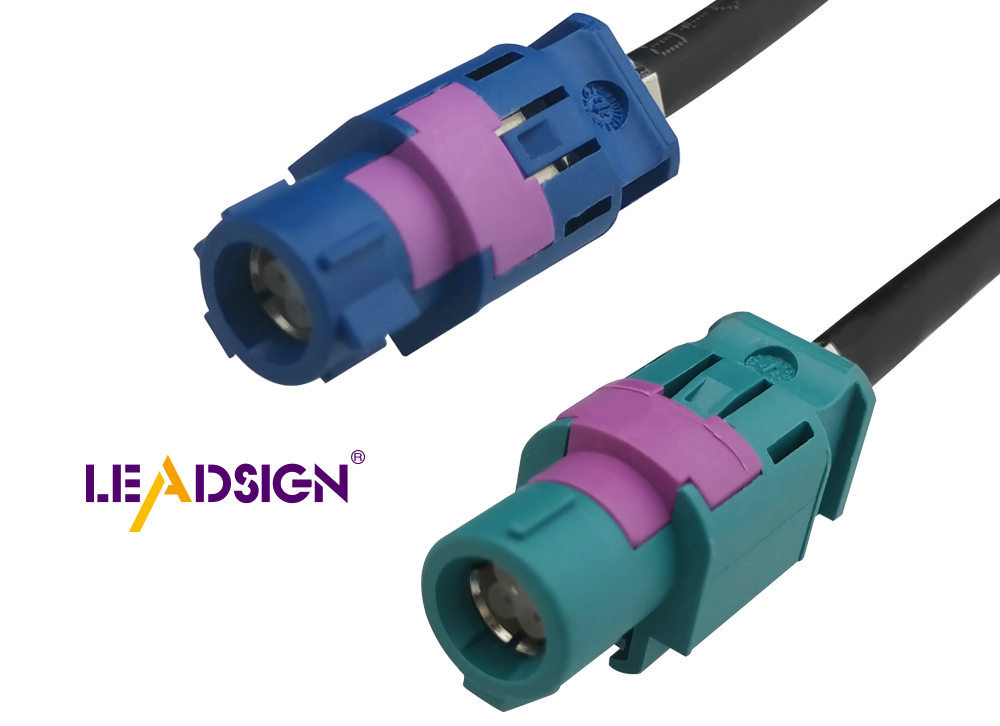Automotive Electrical Connectors Types: Find Your Perfect Match

Selecting the appropriate automotive electrical connectors types for your vehicle is crucial. Different types of connectors play a vital role in ensuring the functionality and safety of your car. By choosing the right connector, you can reduce the likelihood of electrical issues, which account for 45% of connector-related problems. Consider factors such as pin configurations and weather resistance to prevent failures. Opting for the correct automotive electrical connectors types enhances the reliability and efficiency of your vehicle, making it essential for all automotive applications.
Understanding Automotive Electrical Connectors Types

Picking the right automotive electrical connectors types is important. It helps your vehicle work well and stay safe. Let's look at some common types and where they are used.
High-Speed Data Connectors
These connectors move lots of data fast. They are needed in cars for quick data transfer.
HSD Connector
HSD Connectors send data quickly and smoothly. They work with many data systems, making sure signals move without problems. These are used in car electronics like cameras and music systems where good data flow is key.
Applications and Benefits
Applications:
Car electronics
Music systems
USB links
Ethernet uses
Benefits:
Fast data speed
Works with many data systems
Saves money on cables
Sealed Connectors
Sealed connectors keep out water and dust. They are used in cars that face tough conditions.
Types of Sealed Connectors
There are different sealed connectors for different jobs. Examples include JAE MX23A Series and Bosch EV1, often found in fuel parts and engine controls.
Applications and Benefits
Applications:
Engine controls
Fuel parts
Car wiring
Benefits:
Protects from weather
More reliable
Good for tough car areas
Weatherproof Connectors
Weatherproof connectors handle bad weather, perfect for outside car projects.
Weather Pack Connectors
Weather Pack Connectors last long and don't cost much, first made for GM cars. They are trusted in project cars and hard jobs.
Applications and Benefits
Applications:
Outside car projects
Big machines
Farm tools
Benefits:
Strong against weather
Easy to use
Works well in bad conditions
Knowing about these connector types helps you choose the best ones for your car needs. Each type has special uses, so you can find the right match easily.
Mechanical Properties and Uses
Knowing how strong car connectors are is important. It helps them last long and work well. These features show how connectors do in different situations, which affects your car's safety and efficiency.
Strength and Trustworthiness
When picking car connectors, think about their strength and trustworthiness. These make sure they can handle tough places and keep working over time.
What They're Made Of
What connectors are made of matters for their strength. Makers use plastic, metal, or both to make strong connectors. Gold on contacts makes them conduct electricity better and last longer. It's a top pick for small contacts because it works great. Picking good materials means your connectors will last.
Handling the Environment
Handling the environment is key for car connectors. They need to fight off things like water, dust, and temperature changes. Sealed ones keep out water and dust, so they're good for cars in hard conditions. This keeps them from failing and ensures they work well.
Electrical Work
How well car connectors move power is very important. You should check if they conduct electricity well and have good insulation to work best.
Conducting Power and Insulating
Conducting power and insulating are big parts of electrical work for connectors. Good conduction moves power well; good insulation stops short circuits. How much current a connector carries affects heat, so choose ones with the right plating to reduce heat.
Voltage and Current Limits
Voltage and current limits matter when choosing car connectors. These limits tell you how much voltage or current they can safely handle. Picking the right limits stops problems like noise or wrong circuit activation. Proper pin spacing also helps electrical work by lowering failure risks.
By knowing about these properties of car connectors, you can choose the best ones for your vehicle needs. This knowledge makes sure your connectors will be reliable, boosting your car's safety and function.
Things to Think About When Picking Connectors
Picking the right automotive electrical connectors needs careful thought. Make sure they fit your car's needs. Let's look at what to consider.
Power Needs
Knowing power needs is key when picking connectors. You need to think about both current and voltage for best use.
Current and Voltage Needs
Current Capacity: Pick connectors that handle your car's current needs. This stops overheating and helps power move well.
Voltage Levels: Make sure connectors can take your car's voltage. This avoids electrical problems and keeps systems working.
Load Ability
Power Handling: Choose connectors based on their power load ability. This depends on what they're made of and how they're built.
Amperage Needs: Think about the amperage your car uses. Right amperage stops connector harm and keeps them working well.
Working Conditions
Working conditions affect how connectors work a lot. Check if they can handle things like weather changes.
Temperature and Wetness
Temperature Range: Pick connectors that work in your car's temperature range. This stops heat damage and makes them last longer.
Wetness Resistance: Choose ones that keep out water. This stops rusting and keeps electricity flowing.
Shake and Hit Resistance
Tough in Hard Places: Get connectors that handle shakes and hits. They stay safe and work well in tough spots.
Strong Build: Look for strong-built connectors. They handle stress without breaking down.
Size Limits
Size limits matter when picking connectors. Make sure they fit in the space you have in your car.
Space Fit
Size Check: Think about connector size to fit spaces without trouble.
Layout Look: Check layout as it affects cost and cable use.
Connector Shape
Design Fit: Pick shapes that match your car’s design for easy fitting.
Shape Choice: Choose shapes easy to put together, making fixing simple.
By thinking about these points, you can pick the best connectors for your car, ensuring everything works well together efficiently.
Choosing the right automotive electrical connectors keeps your car safe and reliable. Think about these important things:
Know Connector Types: Each type does different jobs, like fast data transfer or keeping out weather.
Check Mechanical Strength: Strong and good electrical work is important for lasting use.
Look at Your Needs: Match connectors to your car's power needs, working conditions, and size limits.
By focusing on what you need and where you drive, you make smart choices that improve your car's performance and life.
See Also
Exploring High-Speed HSD Connectors in Automotive Technology
Discovering the Power: High-Speed FAKRA-Mini Connectors in Automotive
Significance of FAKRA Connectors in Automotive Implementations
The Significance of Fakra Connectors in Automotive Technology
Enhancing Automotive Data Transfer: Advanced Connectors and Cables

